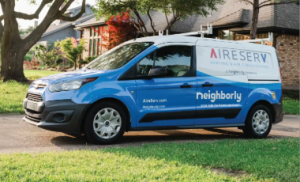Introduction to Efficient Climate Control Solutions
Efficient climate control solutions are becoming increasingly important in both residential and commercial settings. With the rising concerns about energy consumption and environmental impact, it is crucial to find ways to optimize the heating, ventilation, and air conditioning (HVAC) systems in our homes and offices. In this article, we will explore the benefits of energy-efficient HVAC systems, the revolutionary impact of smart thermostats, and provide tips for optimizing climate control efficiency.
Benefits of Energy-Efficient HVAC Systems
Energy-efficient HVAC systems offer numerous advantages, both for the environment and for the occupants of a building. One of the primary benefits is reduced energy consumption, leading to lower utility bills. According to the U.S. Department of Energy, heating and cooling account for nearly half of the energy usage in a typical home. By upgrading to an energy-efficient HVAC system, homeowners can save up to 20% on their energy bills.
Moreover, energy-efficient HVAC systems contribute to a greener environment by reducing greenhouse gas emissions. Traditional HVAC systems often rely on fossil fuels, which release carbon dioxide and other harmful pollutants into the atmosphere. In contrast, energy-efficient systems utilize advanced technologies such as variable speed motors and heat pumps, which consume less energy and produce fewer emissions.
Additionally, energy-efficient HVAC systems provide improved comfort and air quality. These systems are designed to distribute air evenly throughout a building, ensuring consistent temperatures in every room. They also incorporate advanced filtration systems that remove dust, allergens, and other pollutants from the air, promoting a healthier indoor environment.
Smart Thermostats: Revolutionizing Climate Control
Smart thermostats have revolutionized the way we control and optimize our climate control systems. These innovative devices offer advanced features that enhance energy efficiency and convenience. One of the key benefits of smart thermostats is their ability to learn and adapt to the occupants’ preferences and schedule. By analyzing patterns and user inputs, these thermostats can automatically adjust temperature settings to maximize comfort while minimizing energy consumption.
For example, if a homeowner typically leaves for work at 8 a.m., the smart thermostat can learn this routine and adjust the temperature accordingly. It can lower the temperature when the house is empty and start heating or cooling just before the homeowner returns, ensuring a comfortable environment upon arrival. This intelligent scheduling feature can result in significant energy savings.
Smart thermostats also offer remote control capabilities through smartphone apps. This allows users to adjust temperature settings even when they are away from home or office. For instance, if unexpected weather changes occur, users can modify the thermostat settings to ensure optimal comfort upon their return. This level of control not only enhances convenience but also contributes to energy efficiency by avoiding unnecessary heating or cooling.
Tips for Optimizing Climate Control Efficiency
In addition to upgrading to energy-efficient HVAC systems and utilizing smart thermostats, there are several other tips to optimize climate control efficiency in your home or office. Firstly, proper insulation is crucial to prevent heat loss during winter and heat gain during summer. Insulating walls, windows, and attics can significantly reduce the workload on your HVAC system.
Regular maintenance of your HVAC system is also essential. Dirty filters and clogged ducts can restrict airflow and reduce efficiency. Therefore, it is recommended to clean or replace filters regularly and schedule professional maintenance to ensure optimal performance.
Furthermore, utilizing natural ventilation can help reduce the reliance on HVAC systems. Opening windows and using ceiling fans can provide fresh air and cooling during mild weather conditions, reducing the need for air conditioning.
Lastly, adopting energy-saving habits such as turning off lights and appliances when not in use, using energy-efficient light bulbs, and properly sealing windows and doors can further enhance climate control efficiency.
In conclusion, efficient climate control solutions are vital for both residential and commercial settings. Energy-efficient HVAC systems offer benefits such as reduced energy consumption, improved comfort, and a greener environment. Smart thermostats revolutionize climate control by learning user preferences and providing remote control capabilities. By implementing these solutions and following optimization tips, individuals can create a comfortable and energy-efficient environment in their homes or offices.


